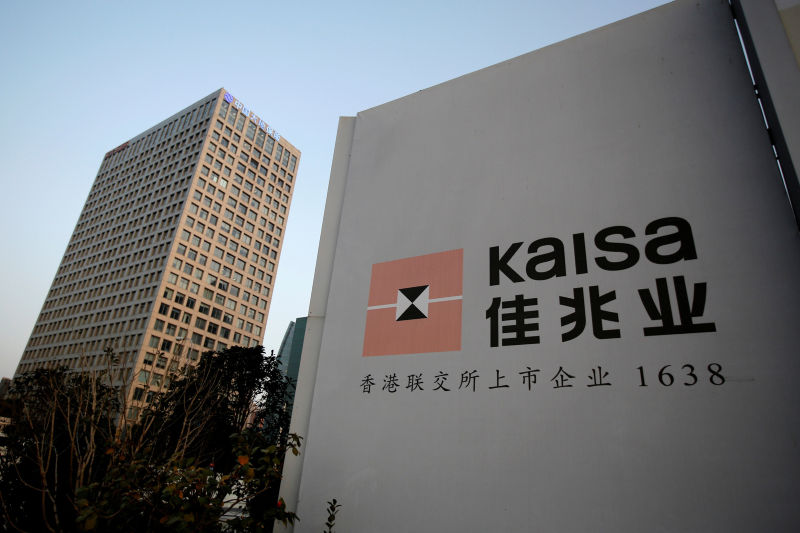Trading in shares of troubled Chinese real estate company Kaisa Group was halted in Hong Kong on Friday after a unit missed a payment on some of its 12.7 billion yuan (US$2 billion) in wealth management products.
The Hong Kong exchange announced the suspension in a brief statement, saying the move was taken at Kaisa’s request.
The group’s shares plunged more than 15% on Thursday to an all-time low. The stock has fallen more than 70% this year.
Shenzhen-based Kaisa said in a statement on Thursday that “multiple unfavourable factors”, such as the severe downturn in the real estate market and downgrading of international rating agencies, had resulted in its liquidity encountering “unprecedented pressure”.
Trading in three Hong Kong-listed units, Kaisa Capital, Kaisa Prosperity and Kaisa Health, was also suspended.
Kaisa’s troubles come amid concerns about a broadening liquidity crisis in the Chinese property sector, with a string of offshore debt defaults, credit rating downgrades and sell-offs in the developers’ shares and bonds in recent weeks.
“Missed repayments and bond swaps have ratcheted up in frequency across Chinese developers, showing that liquidity risks are turning more systemic in China real estate,” Eugene Leow, senior rates strategist at DBS Bank in Singapore, said.
On Thursday, Kaisa met with more than 100 investors earlier in the day to explain the wealth management product situation, Chinese media reported.
Redemption Plan
Securities Times quoted Guo Yingcheng, chairman of the Kaisa Group board, as telling them the company had the “ability and method to repay”.
It said Kaisa Group acknowledged that the unit, Jinheng Wealth, had missed payments. Kaisa said it had communicated with Jinheng Wealth and resolved it would “resolutely fulfil its social responsibilities”.
The group would determine a redemption plan with Jinheng Wealth “as soon as possible and announce it to investors”, Securities Times reported.
In 2015, Kaisa became the first Chinese property developer to default on its overseas debt, the South China Morning Post noted.
On October 27, Fitch Ratings downgraded Kaisa’s long-term foreign-currency issuer default rating, citing its “limited funding access and uncertainty over the refinancing of a significant amount of US-dollar bond maturities and coupon payment”.
Fitch said not all of the cash on Kaisa’s consolidated balance sheet would be available to service the debt at the holding company, given high minority interests and project commitments.
























